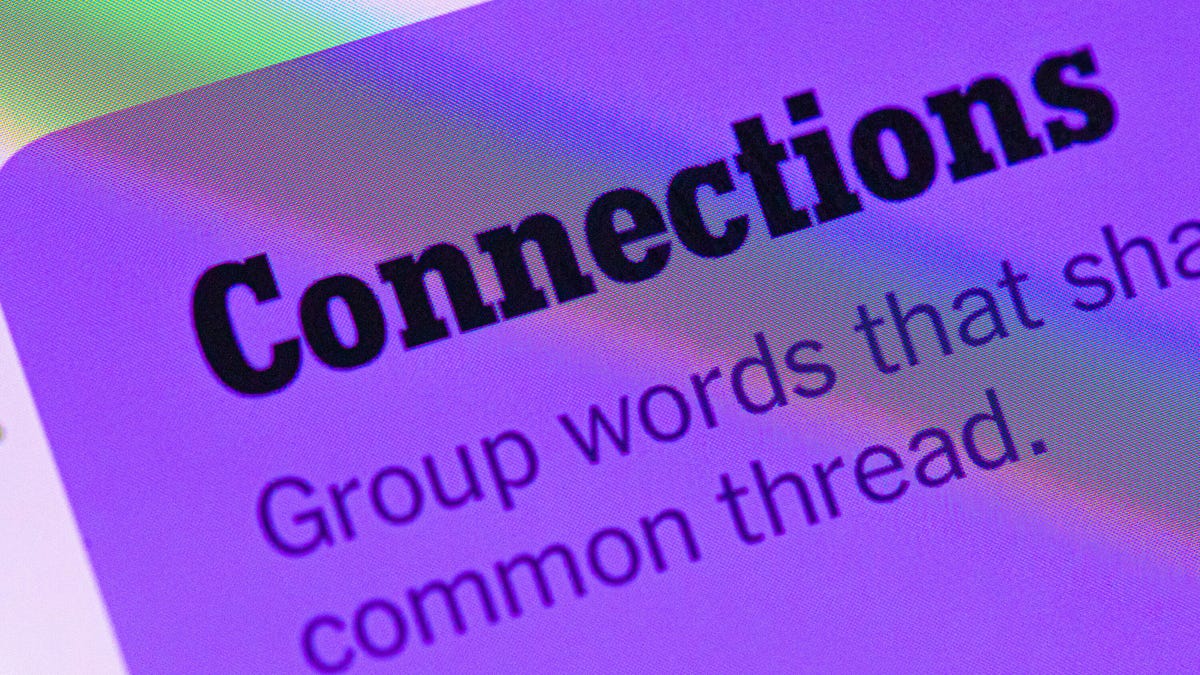Technologies
What a Proposed Moratorium on State AI Rules Could Mean for You
Congressional Republicans have proposed a 10-year pause on the enforcement of state regulations around artificial intelligence.

States couldn’t enforce regulations on artificial intelligence technology for a decade under a plan being considered in the US House of Representatives. The legislation, in an amendment to the federal government’s budget bill, says no state or political subdivision «may enforce any law or regulation regulating artificial intelligence models, artificial intelligence systems or automated decision systems» for 10 years. The proposal would still need the approval of both chambers of Congress and President Donald Trump before it can become law. The House is expected to vote on the full budget package this week.
AI developers and some lawmakers have said federal action is necessary to keep states from creating a patchwork of different rules and regulations across the US that could slow the technology’s growth. The rapid growth in generative AI since ChatGPT exploded on the scene in late 2022 has led companies to fit the technology in as many spaces as possible. The economic implications are significant, as the US and China race to see which country’s tech will predominate, but generative AI poses privacy, transparency and other risks for consumers that lawmakers have sought to temper.
«We need, as an industry and as a country, one clear federal standard, whatever it may be,» Alexandr Wang, founder and CEO of the data company Scale AI, told lawmakers during an April hearing. «But we need one, we need clarity as to one federal standard and have preemption to prevent this outcome where you have 50 different standards.»
Efforts to limit the ability of states to regulate artificial intelligence could mean fewer consumer protections around a technology that is increasingly seeping into every aspect of American life. «There have been a lot of discussions at the state level, and I would think that it’s important for us to approach this problem at multiple levels,» said Anjana Susarla, a professor at Michigan State University who studies AI. «We could approach it at the national level. We can approach it at the state level too. I think we need both.»
Several states have already started regulating AI
The proposed language would bar states from enforcing any regulation, including those already on the books. The exceptions are rules and laws that make things easier for AI development and those that apply the same standards to non-AI models and systems that do similar things. These kinds of regulations are already starting to pop up. The biggest focus is not in the US, but in Europe, where the European Union has already implemented standards for AI. But states are starting to get in on the action.
Colorado passed a set of consumer protections last year, set to go into effect in 2026. California adopted more than a dozen AI-related laws last year. Other states have laws and regulations that often deal with specific issues such as deepfakes or require AI developers to publish information about their training data. At the local level, some regulations also address potential employment discrimination if AI systems are used in hiring.
«States are all over the map when it comes to what they want to regulate in AI,» said Arsen Kourinian, partner at the law firm Mayer Brown. So far in 2025, state lawmakers have introduced at least 550 proposals around AI, according to the National Conference of State Legislatures. In the House committee hearing last month, Rep. Jay Obernolte, a Republican from California, signaled a desire to get ahead of more state-level regulation. «We have a limited amount of legislative runway to be able to get that problem solved before the states get too far ahead,» he said.
While some states have laws on the books, not all of them have gone into effect or seen any enforcement. That limits the potential short-term impact of a moratorium, said Cobun Zweifel-Keegan, managing director in Washington for the International Association of Privacy Professionals. «There isn’t really any enforcement yet.»
A moratorium would likely deter state legislators and policymakers from developing and proposing new regulations, Zweifel-Keegan said. «The federal government would become the primary and potentially sole regulator around AI systems,» he said.
What a moratorium on state AI regulation means
AI developers have asked for any guardrails placed on their work to be consistent and streamlined. During a Senate Commerce Committee hearing last week, OpenAI CEO Sam Altman told Sen. Ted Cruz, a Republican from Texas, that an EU-style regulatory system «would be disastrous» for the industry. Altman suggested instead that the industry develop its own standards.
Asked by Sen. Brian Schatz, a Democrat from Hawaii, if industry self-regulation is enough at the moment, Altman said he thought some guardrails would be good but, «It’s easy for it to go too far. As I have learned more about how the world works, I am more afraid that it could go too far and have really bad consequences.» (Disclosure: Ziff Davis, parent company of CNET, in April filed a lawsuit against OpenAI, alleging it infringed Ziff Davis copyrights in training and operating its AI systems.)
Concerns from companies — both the developers that create AI systems and the «deployers» who use them in interactions with consumers — often stem from fears that states will mandate significant work such as impact assessments or transparency notices before a product is released, Kourinian said. Consumer advocates have said more regulations are needed, and hampering the ability of states could hurt the privacy and safety of users.
«AI is being used widely to make decisions about people’s lives without transparency, accountability or recourse — it’s also facilitating chilling fraud, impersonation and surveillance,» Ben Winters, director of AI and privacy at the Consumer Federation of America, said in a statement. «A 10-year pause would lead to more discrimination, more deception and less control — simply put, it’s siding with tech companies over the people they impact.»
A moratorium on specific state rules and laws could result in more consumer protection issues being dealt with in court or by state attorneys general, Kourinian said. Existing laws around unfair and deceptive practices that are not specific to AI would still apply. «Time will tell how judges will interpret those issues,» he said.
Susarla said the pervasiveness of AI across industries means states might be able to regulate issues like privacy and transparency more broadly, without focusing on the technology. But a moratorium on AI regulation could lead to such policies being tied up in lawsuits. «It has to be some kind of balance between ‘we don’t want to stop innovation,’ but on the other hand, we also need to recognize that there can be real consequences,» she said.
Much policy around the governance of AI systems does happen because of those so-called technology-agnostic rules and laws, Zweifel-Keegan said. «It’s worth also remembering that there are a lot of existing laws and there is a potential to make new laws that don’t trigger the moratorium but do apply to AI systems as long as they apply to other systems,» he said.
Moratorium draws opposition ahead of House vote
House Democrats have said the proposed pause on regulations would hinder states’ ability to protect consumers. Rep. Jan Schakowsky called the move «reckless» in a committee hearing on AI regulation Wednesday. «Our job right now is to protect consumers,» the Illinois Democrat said.
Republicans, meanwhile, contended that state regulations could be too much of a burden on innovation in artificial intelligence. Rep. John Joyce, a Pennsylvania Republican, said in the same hearing that Congress should create a national regulatory framework rather than leaving it to the states. «We need a federal approach that ensures consumers are protected when AI tools are misused, and in a way that allows innovators to thrive.»
At the state level, a letter signed by 40 state attorneys general — of both parties — called for Congress to reject the moratorium and instead create that broader regulatory system. «This bill does not propose any regulatory scheme to replace or supplement the laws enacted or currently under consideration by the states, leaving Americans entirely unprotected from the potential harms of AI,» they wrote.
Technologies
Today’s NYT Connections Hints, Answers and Help for Feb. 5, #970
Here are some hints and the answers for the NYT Connections puzzle for Feb. 5 #970.

Looking for the most recent Connections answers? Click here for today’s Connections hints, as well as our daily answers and hints for The New York Times Mini Crossword, Wordle, Connections: Sports Edition and Strands puzzles.
Today’s NYT Connections puzzle is kind of tough. Read on for clues and today’s Connections answers.
The Times has a Connections Bot, like the one for Wordle. Go there after you play to receive a numeric score and to have the program analyze your answers. Players who are registered with the Times Games section can now nerd out by following their progress, including the number of puzzles completed, win rate, number of times they nabbed a perfect score and their win streak.
Read more: Hints, Tips and Strategies to Help You Win at NYT Connections Every Time
Hints for today’s Connections groups
Here are four hints for the groupings in today’s Connections puzzle, ranked from the easiest yellow group to the tough (and sometimes bizarre) purple group.
Yellow group hint: Star-spangled signs.
Green group hint: Smash into.
Blue group hint: Not green or red.
Purple group hint: Same surname.
Answers for today’s Connections groups
Yellow group: Cultural symbols of the US.
Green group: Collide with.
Blue group: Blue things.
Purple group: Lees of Hollywood.
Read more: Wordle Cheat Sheet: Here Are the Most Popular Letters Used in English Words
What are today’s Connections answers?
The yellow words in today’s Connections
The theme is cultural symbols of the US. The four answers are American flag, apple pie, bald eagle and baseball.
The green words in today’s Connections
The theme is collide with. The four answers are bump, butt, knock and ram.
The blue words in today’s Connections
The theme is blue things. The four answers are jeans, lapis lazuli, ocean and sky.
The purple words in today’s Connections
The theme is Lees of Hollywood. The four answers are Ang, Bruce, Christopher and Spike.
Technologies
Today’s NYT Strands Hints, Answers and Help for Feb. 5 #704
Here are hints and answers for the NYT Strands puzzle for Feb. 5, No. 704.

Looking for the most recent Strands answer? Click here for our daily Strands hints, as well as our daily answers and hints for The New York Times Mini Crossword, Wordle, Connections and Connections: Sports Edition puzzles.
Today’s NYT Strands puzzle is a fun one, once you clue in on the theme. Some of the answers are difficult to unscramble, so if you need hints and answers, read on.
I go into depth about the rules for Strands in this story.
If you’re looking for today’s Wordle, Connections and Mini Crossword answers, you can visit CNET’s NYT puzzle hints page.
Read more: NYT Connections Turns 1: These Are the 5 Toughest Puzzles So Far
Hint for today’s Strands puzzle
Today’s Strands theme is: Quint-essential.
If that doesn’t help you, here’s a clue: Not four, or six.
Clue words to unlock in-game hints
Your goal is to find hidden words that fit the puzzle’s theme. If you’re stuck, find any words you can. Every time you find three words of four letters or more, Strands will reveal one of the theme words. These are the words I used to get those hints but any words of four or more letters that you find will work:
- DAYS, GIVE, WOVE, DOVE, LOVE, DOGS, SCONE, STOLE, GEEK, LODE, SIEGE, SLEW, HENS
Answers for today’s Strands puzzle
These are the answers that tie into the theme. The goal of the puzzle is to find them all, including the spangram, a theme word that reaches from one side of the puzzle to the other. When you have all of them (I originally thought there were always eight but learned that the number can vary), every letter on the board will be used. Here are the nonspangram answers:
- TOES, OCEANS, SENSES, VOWELS, BOROUGHS, WEEKDAYS
Today’s Strands spangram
Today’s Strands spangram is GIVEMEFIVE. To find it, start with the G that’s three letters to the right on the top row, and wind down.
Don’t miss any of our unbiased tech content and lab-based reviews. Add CNET as a preferred Google source.
Technologies
The Motorola Signature Is the Moto Phone I’ve Wanted for Years
Motorola’s new phone is its best flagship yet and could be the Galaxy S26 Plus rival that Samsung didn’t see coming.

At CES 2026, among the AI humanoids, flashy concepts and next-gen foldables, was a Motorola phone that I didn’t expect to be a CES highlight. And no, I’m not talking about theMotorola Razr Fold. While it was the talk of the town (after all, it is the company’s first-ever book-style foldable), there’s a premium smartphone with top specs and a sophisticated design: the Motorola Signature.
Recent high-end Motorola phones have had good-looking hardware, but they don’t compete with the Galaxy S25 Ultras or Pixel 10s of the world. They fall short in one or more areas, including display, performance, cameras, software or battery. The Motorola Signature is the company’s first flagship phone that looks confident enough to take on heavyweights like the upcoming Galaxy S26 Plus and the current iPhone 17, without faltering on either hardware or software.
I’ve been using it for a couple of days now, and this Motorola phone doesn’t have any major downsides, especially for the price. The biggest one could be availability: It won’t be coming to the US, but it is now available for purchase in India at an unbeatable price. It undercuts the OnePlus 15, iPhone 17 and the Pixel 10 by almost $150 or more (directly converted from INR).
With the ever-increasing prices of premium phones, the Motorola Signature is the flagship killer we’ve been waiting for. At about $660 (INR 59,999), it is hard to beat, and I can admit I’m finally excited about a Motorola phone that’s not a Razr.
Motorola Signature is lightweight, slim and rugged
The Motorola Signature has a 6.8-inch 1,264×2,780-pixel resolution AMOLED display with support for a 165Hz refresh rate. It is an LTPO panel, so it can be set to 1Hz for an always-on display (like the iPhone 17 series and Galaxy S25 Ultra), thereby saving battery life. Its resolution might not be as high as the Galaxy S25 Ultra’s, but it is a promising screen for gaming and content consumption.
I couldn’t find a game to test its 165Hz refresh rate, but watching YouTube videos, Instagram Reels and reading ebooks — both indoors and outdoors — was a pleasing experience. The screen remains legible in all lighting conditions.
Motorola’s new phone is powered by the Qualcomm Snapdragon 8 Gen 5 chipset and is paired with 16GB of RAM and 512GB of storage. While it’s not the highest-end chip available (that’d be the Snapdragon 8 Elite Gen 5), it packs plenty of power. I had no issues in day-to-day use, occasional multitasking or gaming. My only complaint was with the camera shutter in low light, but we’ll get to it in a bit.
The Motorola Signature ships with Android 16 with the company’s in-house Hello UI on top. It is a comparatively clean interface with plenty of customization options to fine-tune your experience. One of my favorite features, Moto gestures (twist to open the camera or make a double-chop motion to turn on and off the flashlight) is always handy in unexpected ways.
You get an AI Key on the left side of the phone to trigger Moto AI (uses Perplexity or Microsoft Copilot), but it can only be triggered once you create a Motorola account. You can configure the button to do other shortcuts, like double-press it to take notes and press and hold to trigger Moto AI. But in reality, I didn’t use any of these features in my daily life and would’ve preferred the ability to remap them to a shortcut. Google’s Gemini assistant is also available.
The Signature has a 5,200-mAh silicon-carbon battery and supports 90-watt wired charging and 50-watt wireless charging. Should those speeds hold up, that battery might fill up quickly using either method. It lasted me an entire day on medium use, but on another day, I had to charge it twice when I pushed it with streaming, browsing, Google Maps navigation for 30 minutes and active camera usage. It doesn’t compete with OnePlus 15’s massive 7,300-mAh cell but does well to reduce battery anxiety.
All of this sounds more impressive when you take the Signature’s design into context: The flagship Qualcomm processor’s power, 5,000-mAh plus battery, big AMOLED screen and three 50-megapixel cameras housed in a slim and lightweight design. The new Motorola phone is 6.99mm thick and weighs just 186 grams. For context, the Galaxy S25 Plus, with a smaller battery, measures 7.3mm thick and weighs 190 grams, while most recent big phones weigh 200 grams or more.
I shifted from the iPhone 17 Pro Max and enjoyed using the Motorola Signature because it weighed less. But I didn’t expect it to be so light. The Signature feels good in my hand. I’m glad it doesn’t have sharp flat sides like the Galaxy S25 Ultra. Plus, I love its linen-inspired finish on the back, which sets it apart from the competition. Like its Edge siblings, the Signature is rated IP68 and IP69 for dust and water resistance (meaning it can survive being submerged under a meter of water for 30 minutes and high-pressure water jets), so there’s no fear of dust and water damage.
Improving on the 2 weakest links
Most Motorola phones that I’ve used in recent years, including the $1,300 Razr Ultra have one or two downsides: software support and/or cameras.
The Signature marks a new beginning for the brand as it joins the ranks of Samsung and Google with seven years of Android OS software and security updates. This is on par with Google Pixel and Samsung Galaxy phones and better than what OnePlus offers. I hope this new software update policy is implemented on more Motorola phones launching in 2026.
Secondly, the Motorola Signature (finally!) introduces an impressive camera system. On the back, you get three cameras: a 50-megapixel main camera with OIS, paired with a 50-megapixel telephoto camera with a 3x zoom lens and OIS, and a 50-megapixel ultrawide camera. This is the first Motorola phone with cameras that I wouldn’t trade for another setup during my vacations.
Photos from the primary and telephoto cameras have better color accuracy than previous Moto shooters. Images have a slightly warmer tone and are saturated — not as much as the OnePlus 15, which delivers much more saturated tones. I prefer Signature’s look in most scenarios.
However, the ultrawide-angle camera retains fewer details, and OnePlus does better in that regard.
The telephoto lens struggles with edge detection in low-light portraits, but I loved using it for architecture shots and capturing scenery around me. It can deliver some stunning shots even in 6x. Mind you, it has 3x optical zoom, but I shot the above photo in 6x, and it has a nice bokeh, good details and an overall pleasing look.
Motorola Signature final thoughts
Overall, the Signature has solid cameras for the price and the best optics yet for a Motorola phone. But there’s one hindrance: The camera shutter in low light is slow to process images. For instance, I wanted to snap a few action shots during a badminton game, but I missed some great smashes because the camera wouldn’t allow me to capture images faster.
The Motorola Signature marks a solid flagship comeback for the brand. It has a big and bright display, a capable processor, a versatile camera setup and good battery life. This phone is hard to fault in its price segment.
The Signature is now available to purchase in India at a starting price of INR 59,999 (approximately $660) for the 256GB variant. It will go on sale in Europe for €999 (approximately $1,170) with 512GB storage in the base version. Motorola has plans to launch its new flagship phone in more countries across the Middle East, Africa, Latin America and Asia-Pacific regions. However, the Motorola Signature won’t be coming to the US.
-

 Technologies3 года ago
Technologies3 года agoTech Companies Need to Be Held Accountable for Security, Experts Say
-

 Technologies3 года ago
Technologies3 года agoBest Handheld Game Console in 2023
-

 Technologies3 года ago
Technologies3 года agoTighten Up Your VR Game With the Best Head Straps for Quest 2
-

 Technologies4 года ago
Technologies4 года agoBlack Friday 2021: The best deals on TVs, headphones, kitchenware, and more
-

 Technologies5 лет ago
Technologies5 лет agoGoogle to require vaccinations as Silicon Valley rethinks return-to-office policies
-

 Technologies5 лет ago
Technologies5 лет agoVerum, Wickr and Threema: next generation secured messengers
-

 Technologies4 года ago
Technologies4 года agoOlivia Harlan Dekker for Verum Messenger
-

 Technologies4 года ago
Technologies4 года agoiPhone 13 event: How to watch Apple’s big announcement tomorrow
